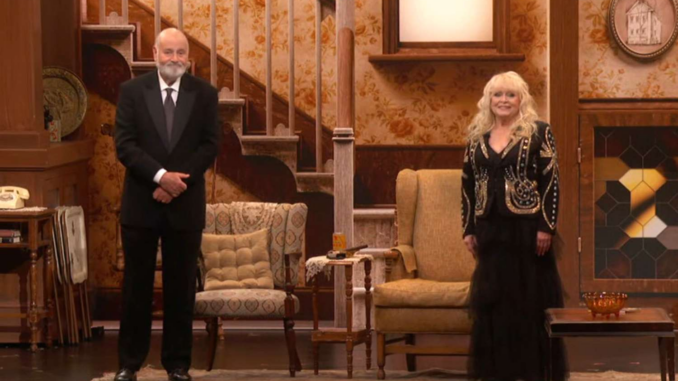
When you think of television that makes you laugh while also making you think, Norman Lear is the name that stands out. He is the mastermind behind some of the most iconic shows in American history, including All in the Family and The Facts of Life. But what really sets Lear apart is his ability to turn controversy into comedy, addressing societal issues with humor and grace. In this article, we’ll explore how Norman Lear redefined television culture, challenged norms, and paved the way for future generations of storytellers.
The Early Days of Norman Lear
A Background in Entertainment
Born on July 27, 1922, in New Haven, Connecticut, Norman Lear was destined for a career in entertainment. He started in radio and moved into television during the medium’s infancy. His experiences during World War II shaped his worldview, instilling a sense of humor that would later become his trademark.
Finding His Voice
Lear’s early work included writing for various television shows, but it was his own productions that would change the landscape forever. He recognized the power of television as a platform for social commentary and began crafting narratives that tackled real-world issues head-on.
The Groundbreaking Success of All in the Family
A Bold Introduction to Television
Premiering in 1971, All in the Family was a game-changer. The show’s protagonist, Archie Bunker, portrayed by Carroll O’Connor, was a working-class man with outdated views. By showcasing his bigotry and ignorance, Lear opened up a dialogue about racism, gender roles, and class struggles, making these topics accessible to a wide audience.
Using Humor to Address Serious Issues
Lear’s genius lay in his ability to make audiences laugh while confronting uncomfortable truths. The show’s humor made it possible for viewers to engage with serious issues without feeling lectured. By laughing at Archie’s absurdity, audiences were encouraged to reflect on their own beliefs and biases.
Cultural Reflection and Impact
All in the Family didn’t just entertain; it mirrored the societal tensions of the time. It became a cultural touchstone, demonstrating that television could be a powerful vehicle for social change. The show’s success proved that audiences were ready for more meaningful content.
Transitioning to The Facts of Life
Empowerment Through Storytelling
Following the success of All in the Family, Lear introduced The Facts of Life in 1979. This series focused on a group of girls at a boarding school and their housemother, Edna Garrett. Unlike many shows of its time, The Facts of Life emphasized female empowerment and the importance of friendship.
Tackling Real-Life Issues
Each episode of The Facts of Life addressed real-life challenges faced by young women, from self-esteem issues to peer pressure. By tackling these topics with sensitivity and humor, Lear created a show that resonated deeply with its audience, particularly teenage girls.
A Shift in Representation
Lear’s commitment to representation extended to The Facts of Life. The diverse cast showcased a variety of backgrounds and experiences, promoting inclusivity in a way that was rare for television at the time. This focus on authentic representation laid the groundwork for future shows to embrace diversity.
Norman Lear’s Lasting Influence on Television
Inspiring Future Generations
Lear’s impact on television goes beyond his own productions. His approach to storytelling has inspired countless writers, producers, and actors to push the envelope and explore new narratives. Contemporary shows like Black-ish and One Day at a Time continue to draw inspiration from Lear’s pioneering spirit.
A Legacy of Social Responsibility
Norman Lear’s work serves as a reminder that television can be a powerful tool for social change. By addressing real-world issues and encouraging dialogue, he set a standard for future creators. His commitment to making audiences think while they laugh has left an indelible mark on the industry.
The Continuing Relevance of Lear’s Work
Modern Adaptations and Reboots
Even today, Lear’s shows continue to resonate. Reboots and adaptations, such as the recent One Day at a Time, have introduced his messages to new generations. These modern interpretations keep his legacy alive, proving that the themes he championed remain relevant.
Engaging Today’s Audiences
Lear’s ability to touch on timeless issues ensures that his work speaks to today’s audiences. The social dynamics he explored in the 1970s can still be seen in contemporary discussions about race, gender, and identity.
Norman Lear’s Cultural Impact
Transforming Comedy into Commentary
Lear transformed the sitcom genre into a platform for social commentary. By addressing issues like sexism, racism, and poverty, he used comedy as a lens through which to view and critique society. This approach has influenced countless shows and continues to be relevant today.
A New Standard for Television
Lear’s willingness to tackle controversial subjects established a new standard for television programming. He showed that comedy could be both entertaining and thought-provoking, paving the way for future creators to explore complex themes in their work.
Conclusion: Celebrating Norman Lear’s Legacy
Norman Lear’s contributions to television culture are immeasurable. By transforming controversy into comedy, he has redefined the medium and opened doors for future generations of storytellers. His work challenges us to laugh while reflecting on important social issues, reminding us of the power of television as a force for change. As we celebrate his legacy, we recognize the profound impact that shows like All in the Family and The Facts of Life have had on our culture.
